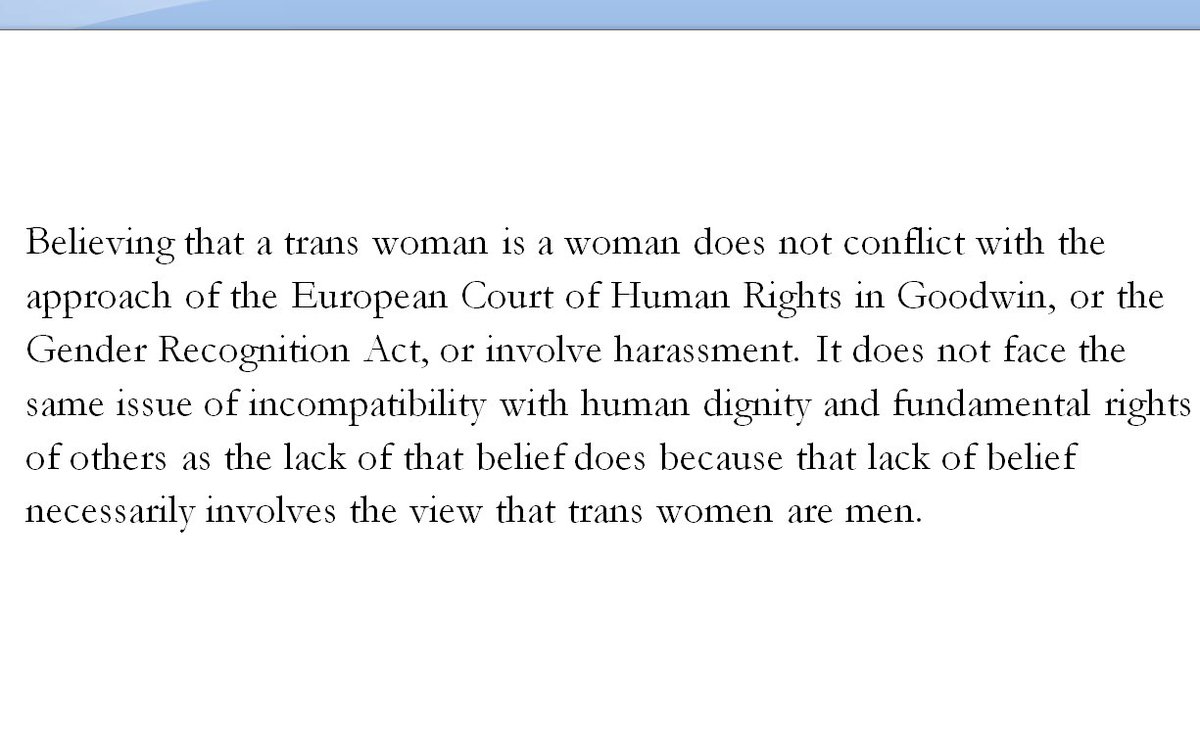A thread by Alessandra Asteriti:
Short thread on Forstater case. I am not going to examine the law, I leave that to experts of equality law. I’ll focus on the language used by the judge, as revealing of male supremacy and incapacity to adopt the female point of view, or empathise with it.
In para 92, the judge states as follows

What is he saying here? He is saying that saying ‘transwomen are women’ is not harassment of women, but saying ‘transwomen are men’ is harassment of transwomen. He is saying what men want always takes precedence over what women want, or even need. He is saying men are offended if women point out that they are not women, even if biologically they are not, so women are only telling the truth. But women cannot be offended if men tell them woman is just a word invented by men and that can be modified by men.
Women’s lived reality means nothing, and any man can erase it by getting a certificate, or even by self-declaring that he is now also a woman. We cannot be offended by a man reducing all our lives to a wish in his head, but men can be offended if we remind him that his wishes (even ‘enshrined’ in law) do not change material reality. Especially because women’s reality is a reality of oppression. TW do not want to partake of the oppression and do nothing to minimise it. They tell us they are women because they ‘present as women’. We are women because we are women.
We are women in the world, because we were girls, and if we survived selective abortion, female infanticide, lack of care, FGM, period huts, childbirth deaths, rapes, dowry deaths, we become adults. In one simple sentence, the judge ignored the reality of women’s existence and elevated the wish of a subsection of men to demand we submit to their vision of who they are, thereby negating our very existence. If any male can declare himself a woman, what is a woman? Who am I, and how am I different from the men who abused me, belittled me, discriminated against me, scared me, pursued me, cursed me? The judge does not care, a male’s wish is his, and our, command.
Very crisply put, I think.
